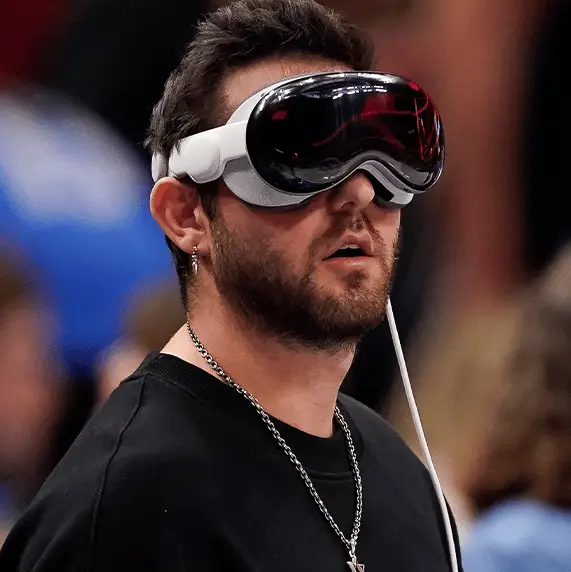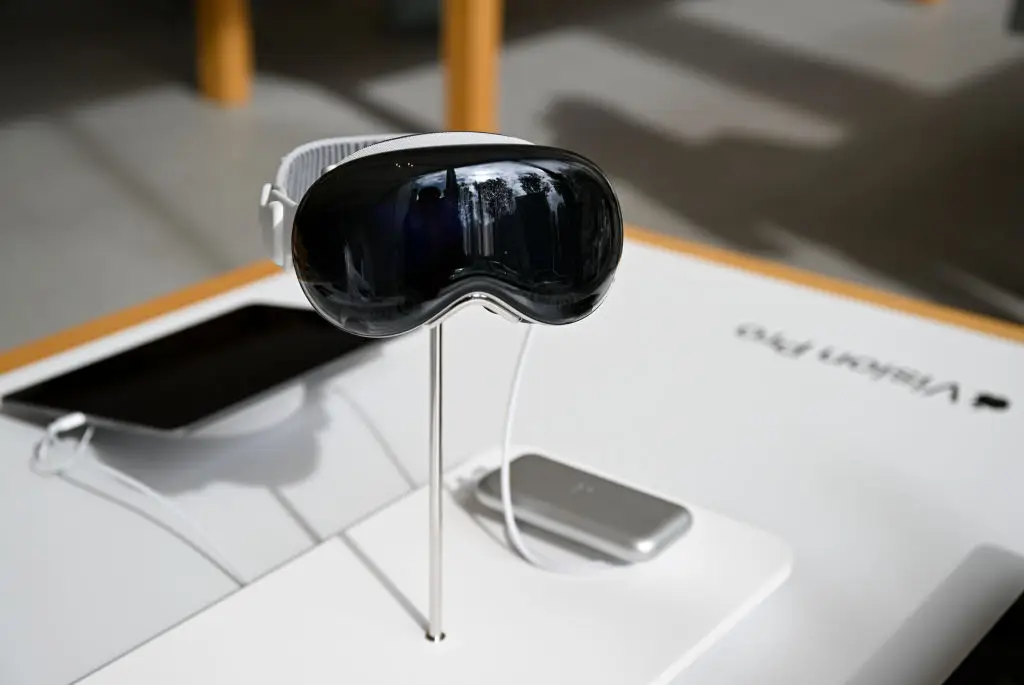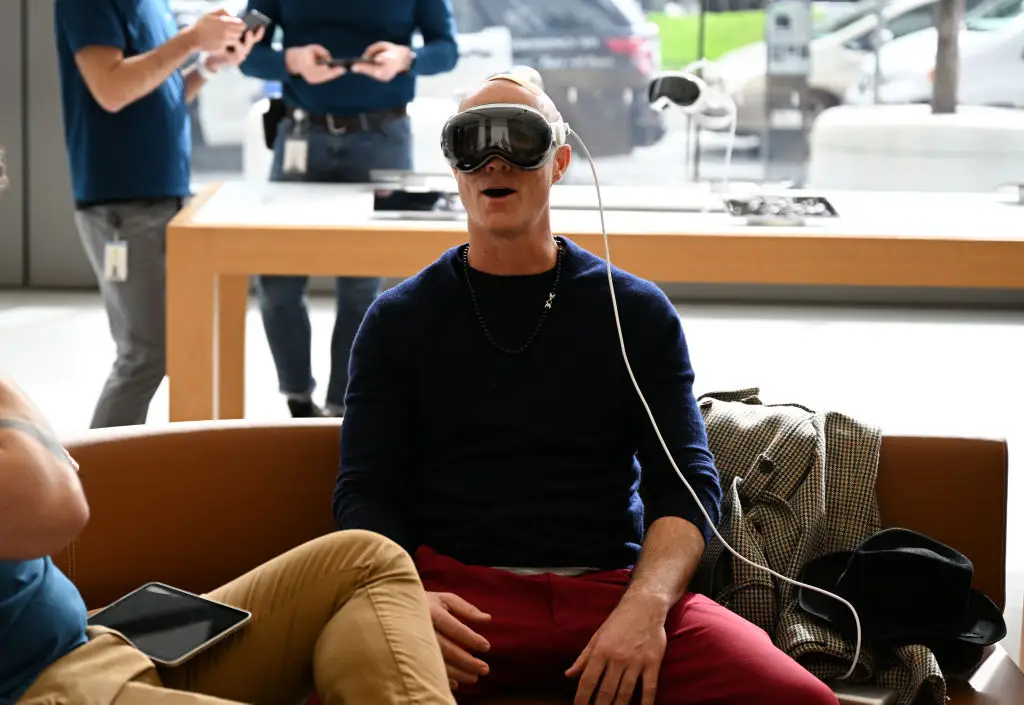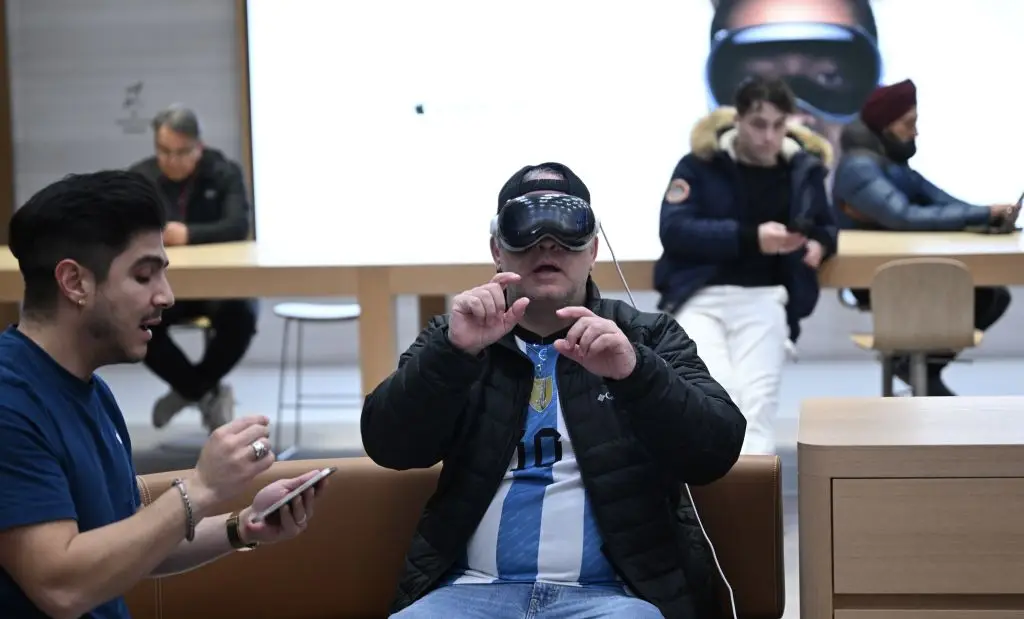
Mixed-reality headsets aren't an entirely new phenomenon - but the release of the Apple Vision Pro really feels like the dawn of a new era.
Since the Vision Pro was unleashed on the world earlier this month, people have been testing the limits of the headset - from wearing it for 50 hours straight to even taking it apart with a scalpel.
It's such a revolutionary piece of tech, we're not entirely sure what kind of impact it will have on society - but scientists have already started speculating on how these kinds of headsets might affect our brains.

Advert
One particular study looked at the impact of passthrough technology - which is basically when you wear a headset over your eyes and your surroundings are beamed in through cameras, so you know what's going on around you.
“Given how far headsets with passthrough video have come, it’s time to dedicate serious academic thought to the psychological and behavioral effects of this technology,” said study lead Jeremy Bailenson, the Thomas More Storke Professor in the Stanford School of Humanities and Sciences and founding director of the Virtual Human Interaction Lab (VHIL).
“We want to understand the implications of living in a life in which we rely on passthrough for hours every day to see the world around us.”
To look into this, a group of researchers from Stanford University and Michigan State University spent at least 140 minutes over two or three sessions wearing the Meta Quest 3 - a type of mixed-reality headset. They basically went about their lives wearing the headset - doing things like walking outdoors, playing games and cooking food, and they reported some issues along the way.

According to the researchers' findings, the majority of sessions caused 'simulator sickness symptoms' - including eye strain, nausea, dizziness and a headache.
The researchers also said the headset means they lost their peripheral vision, plus the screens just aren't as sharp as your natural vision.
According to the scientists, distorition was the main issue they observed. "Anyone who has spent time in a museum’s hall of mirrors that make people appear taller, thinner, or curvier understands this concept," they write in the academic paper.
"When distortion occurs, straight edges appear curved, and the distance between objects appears compressed or expanded. Because wearing passthrough technology involves seeing the world through a small number of cameras, there is often a discrepancy between the location of a user’s real eyes and the location of the camera display."
The researchers said their brains began to adapt to this after wearing the headsets for a while - but there's also the issue of deletion.

"These headsets can not only add things to the real world, they can also delete them," Bailenson told Business Insider.
"I've been doing VR and AR for a while, and I had never in my life seen deletion work so well.
"What we're about to experience is, using these headsets in public, common ground disappears.
"People will be in the same physical place, experiencing simultaneous, visually different versions of the world. We're going to lose common ground."
But it's worth noting this is just onesmall study, and more needs to be done to look into the long-term effects of wearing AR headsets for longer periods.
Apple and Meta have been contacted for comment.